Mechanical Engineering
- ABOUT PROGRAM
- UG PROGRAM
- ACTIVITIES/SPORTS
- FACULTY PROFILE
- FORUM
- ACHIEVEMENTS
- INFRASTRUCTURE
- PLACEMENTS
- DISTINGUISHED ALUMNI
- NEWS/ NEWS LETTERES/ MAGAZINES
- INDUSTRIAL VISIT
- INNOVATIONS IN TEACHING LEARNING
- SYLLABUS
- PRODUCT DEVELOPMENT
- MEDIA CENTRE
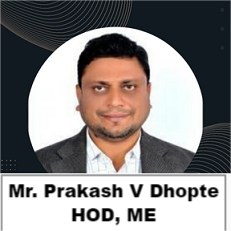 Career Prospects
Career Prospects
Mechanical Engineers are required in the core as well as software industries. They have a wide work in thermal power industry, automobile industry, gas turbines industry, air conditioning and refrigeration industry, oil and gas exploration and refining industries, agricultural sector, educational sector, aviation companies, shipping industries, aerospace industry, armed forces, pharmaceutical, and many others like ISRO,DRDO,Indian Railways, TATA Motors, General Motors, Reliance Industries, Ashok Leyland, Mahindra and Mahindra etc. Mechanical Engineers work in the field of Research and Development, Design, Production, Thermal, Analysis, Testing, Installation and Maintenance etc.
Message Form HOD
Welcome to the Department of Mechanical Engineering at Jhulelal Institute of technology, Nagpur. We have started our journey in the year of 2014 to provide beneficial service to the society.
Our department offers science-based engineering curriculum. The primary focus of our curriculum is to impart technical knowledge to students, promote their problem solving skills and innovation of new technologies. The course contents are periodically updated through Industrial training, Workshops, Industrial visits, Internship, Guest lectures, for introducing new scientific and technological developments .Our outstanding faculty is committed towards excellence in teaching and research. We genuinely care about our students and their future. We promote student awareness for life-long learning and to introduce them to professional ethics and codes.
For the overall development of the student, Department of mechanical engineering formulated a Mechanical Engineering Students association i.e. MECHTRIX. Various activities through this forum which provides Platform to student to gain knowledge and interact with students and staff of other colleges/universities as well as Industry Engineers. Students have taken part in various competitions and won National Level top positions in SAE competitions. The extensive efforts taken by the department to shape the future of the students has not only resulted in consistent top notch performance by the students in the University Examinations of all the semesters, but has also facilitated the students to achieve top positions in various National level competitions. Along with all this as a part of social cause, skill based education is also provided to the students of nearby villages with the help of our fully equipped laboratories and workshop.
Best wishes
Mr.Prakash V. dhopte
HODPEO’s (Program Educational Objectives)
- PEO 1- Excel in higher education by acquiring knowledge in mathematical, analytical and engineering principles.
- PEO 2- To develop the ability among students to analyze data and technical concepts in application of product design.
- PEO 3- To provide opportunity for students to work as part of team by working on various projects.
- PEO 4- To develop students with various soft skills to make them compatible for pursuing different careers in industries.
PSO’s (Program Specific Outcomes)
- PSO 1- The student will be able to apply their knowledge in the field of engineering drawing, material sciences, fluid sciences and thermal engineering to solve engineering problems utilizing advanced technology.
- PSO 2-The student will be able to recognize, design, evaluate and solve engineering problems related to mechanical systems together with allied engineering streams.
- PSO 3-The student will be able to apply economics & managerial skills to enhance the productivity of industries and also implement an idea to set up an enterprise.
PO’s (Program Outcomes)
Engineering Graduates will be able to:
- Engineering Knowledge: Apply knowledge of mathematics, natural science, computing, engineering fundamentals and an engineering specialization as specified in WK1 to WK4 respectively to develop to the solution of complex engineering problems.
- Problem Analysis: Identify, formulate, review research literature and analyze complex engineering problems reaching substantiated conclusions with consideration for sustainable development.(WK1toWK4)
- Design/Development of Solutions: Design creative solutions for complex engineering problems and design/develop systems/components/processes to meet identified needs with consideration for the public health and safety, whole-life cost, net zero carbon, culture, society and environment as required.(WK5)
- Conduct Investigations of Complex Problems: Conduct investigations of complex engineering problems using research-based knowledge including design of experiments, modelling, analysis &interpretation of data to provide valid conclusions.(WK8).
- Engineering Tool Usage: Create, select and apply appropriate techniques, resources and modern engineering & IT tools, including prediction and modelling recognizing their limitations to solve complex engineering problems.(WK2and WK6)
- The Engineer and The World: Analyze and evaluate societal and environmental aspects while solving complex engineering problems for its impact on sustainability with reference to economy, health, safety, legal framework, culture and environment.(WK1,WK5,andWK7).
- Ethics: Apply ethical principles and commit to professional ethics, human values, diversity and inclusion; adhere to national &international laws.(WK9)
- Individual and team work: Function effectively as an individual, and as a member or leader in diverse teams, and in multidisciplinary settings.
- Communication: Communicate effectively and inclusively within the engineering community and society at large, such as being able to comprehend and write effective reports and design documentation, make effective presentations considering cultural, language, and learning differences.
- Project Management and Finance: Apply knowledge and understanding of engineering management principles and economic decision-making and apply these to one’s own work, as a member and leader in a team, and to manage projects and in multidisciplinary environments.
- Life-Long Learning: Recognize the need for, and have the preparation and ability for Independent and life-long learning Adaptability to new and emerging technologies and Critical thinking in the broadest context of technological change. (WK8).
Knowledge and Attitude Profile(WK)
- WK1: A systematic, theory-based understanding of the natural sciences applicable to the discipline and awareness of relevant social sciences.
- WK2: Conceptually-based mathematics, numerical analysis, data analysis, statistics and formal aspects of computer and information science to support detailed analysis and modelling applicable to the discipline.
- WK3: A systematic, theory-based formulation of engineering fundamentals required in the engineering discipline.
- WK4: Engineering specialist knowledge that provides theoretical frameworks and bodies of knowledge for the accepted practice are as in the engineering discipline; much is at the forefront of the discipline.
- WK5: Knowledge, including efficient resource use, environment a limp acts, whole-life cost, re-use of resources, net zero carbon, and similar concepts, that supports engineering design and operations in a practice area.
- WK6: Knowledge of engineering practice (technology) in the practice are as in the engineering discipline.
- WK7: Knowledge of the role of engineering in society and identified issues in engineering practice in the discipline, such as the professional responsibility of an engineer to public safety and sustainable development.
- WK8: Engagement with selected knowledge in the current research literature of the discipline, awareness of the power of critical thinking and creative approaches to evaluate emerging issues.
- WK9: Ethics, inclusive behavior and conduct. Knowledge of professional ethics, responsibilities, and norms of engineering practice. Awareness of the need for diversity by reason of ethnicity, gender, age, physical ability etc. with mutual understanding and respect, and of inclusive attitudes.
Consultancy Work in Various Industries:

Glimpses of Go-Kart Event:

Industrial Visit:

Our Internship Partners

| Sr. No. | Name of Faculty | Designation | Joining Date | Qualification | Nature of Association |
| 1 | Mr. Prakash Dhopte | Asstt. Professor & HoD | 21/06/2016 | M.Tech. | Regular |
| 2 | Mr. Amar Kawale | Asstt. Professor | 01/09/2010 | M.Tech. | Regular |
| 3 | Mr. Safal Shambharkar | Asstt. Professor | 11/08/2015 | M.Tech. | Regular |
| 4 | Mr. Sanjay Sajjanwar | Asstt. Professor | 15/06/2016 | PhD | Regular |
| 5 | Mr. Rahul Waghmare | Asstt. Professor | 29/06/2017 | PhD | Regular |
| 6 | Mr. Bhushan Deshmukh | Asstt. Professor | 06/07/2017 | M.Tech. | Regular |
| 7 | Mr. Pravin Petkar | Asstt. Professor | 17/08/2022 | PhD | Regular |
| 8 | Dr. Ashish Thakre | Asso. Professor | 01/08/2022 | PhD | Regular |
| 9 | Mr. Anuj Muley | Asstt. Professor | 01/07/2025 | B.E., M.Tech. | Regular |
| 10 | Dr. Bhojraj Kale | Asso. Professor | 14/07/2025 | PhD | Regular |
| 11 | Mr. Praful Date | Asstt. Professor | 11/09/2025 | B.E., M.Tech. | Regular |
ISHARE Installation
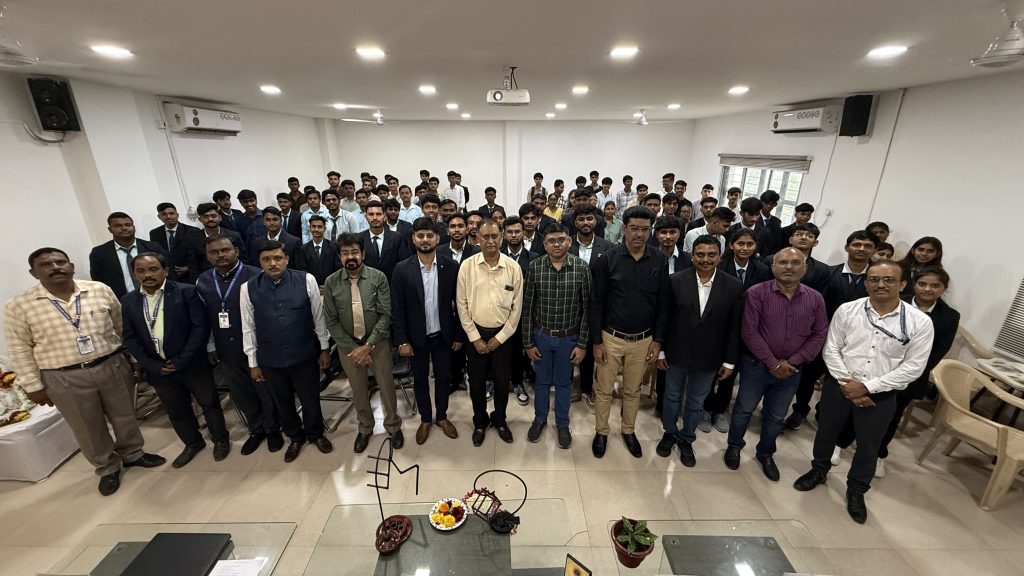
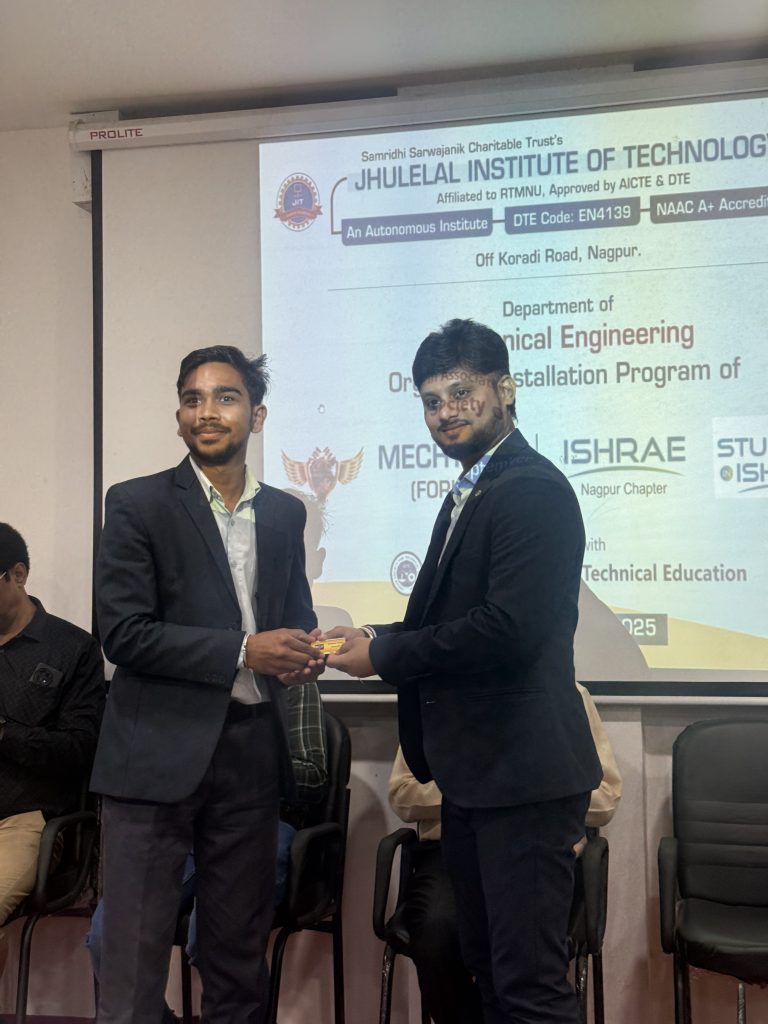
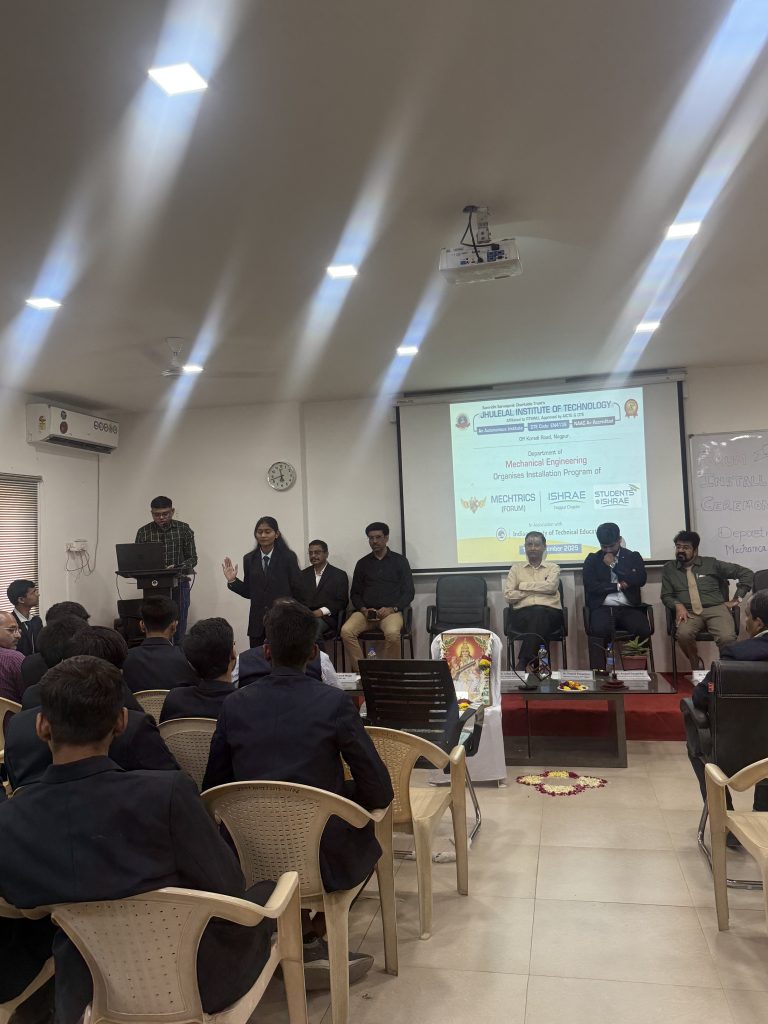
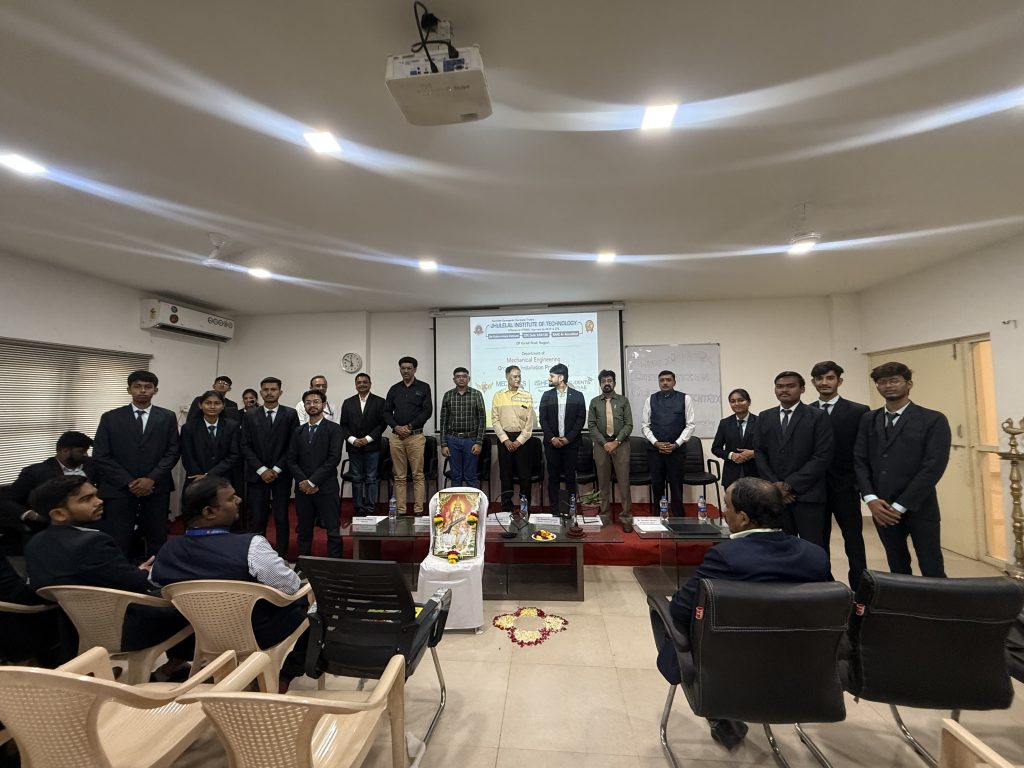
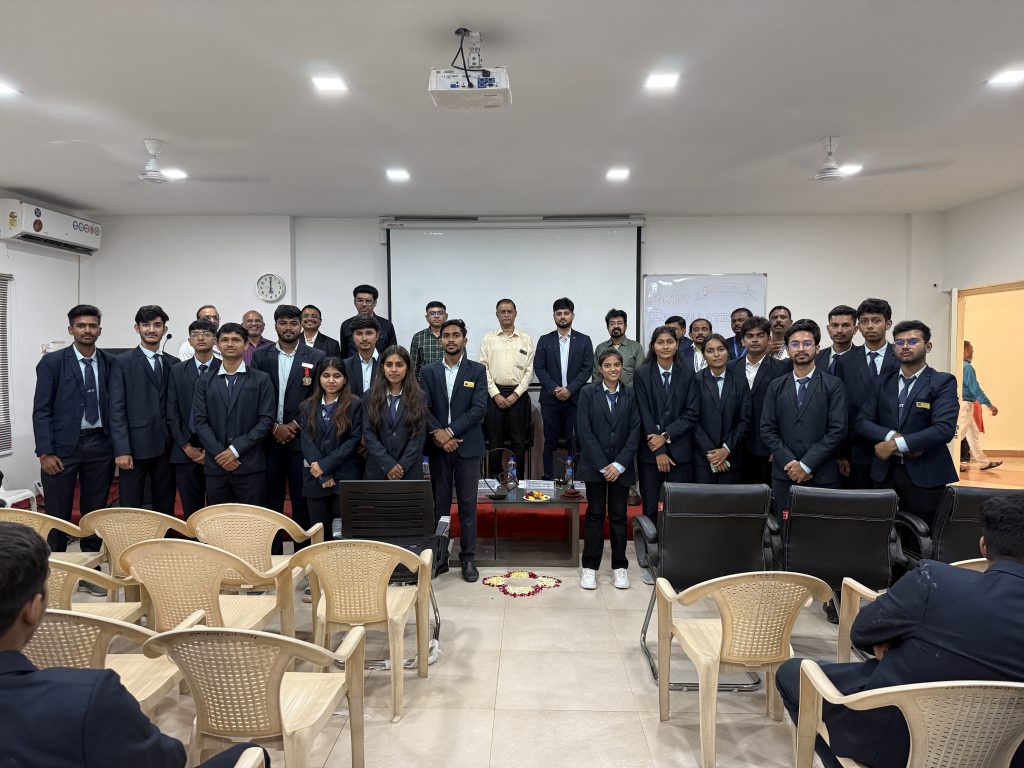


Forum Installation:

Workshop on IC Engine:

Seminar on Carrier guidance:

Handson training on CATIA:

Seminar on GD & T:

Session on Go-Kart:

Achievements
Appreciation received from Shri Nitinji Gadkari for Lion Sculpture (made from automobile waste) at Vidarbha Advantage Mega fair:

Mr. Darshan gurubaxani 3rd year students received 1st prize in YuvaRang:

Project Solar Operated E-Rikshaw Won 1st Prize at Priyadarshini college of Engineering Secured 11th Rank In National Go-kart:

Secured 11th Rank In National Go-kart Championship Held At Bhopal In The Year 2018:

Darshan gurubaxani won various awards at poster making competition:

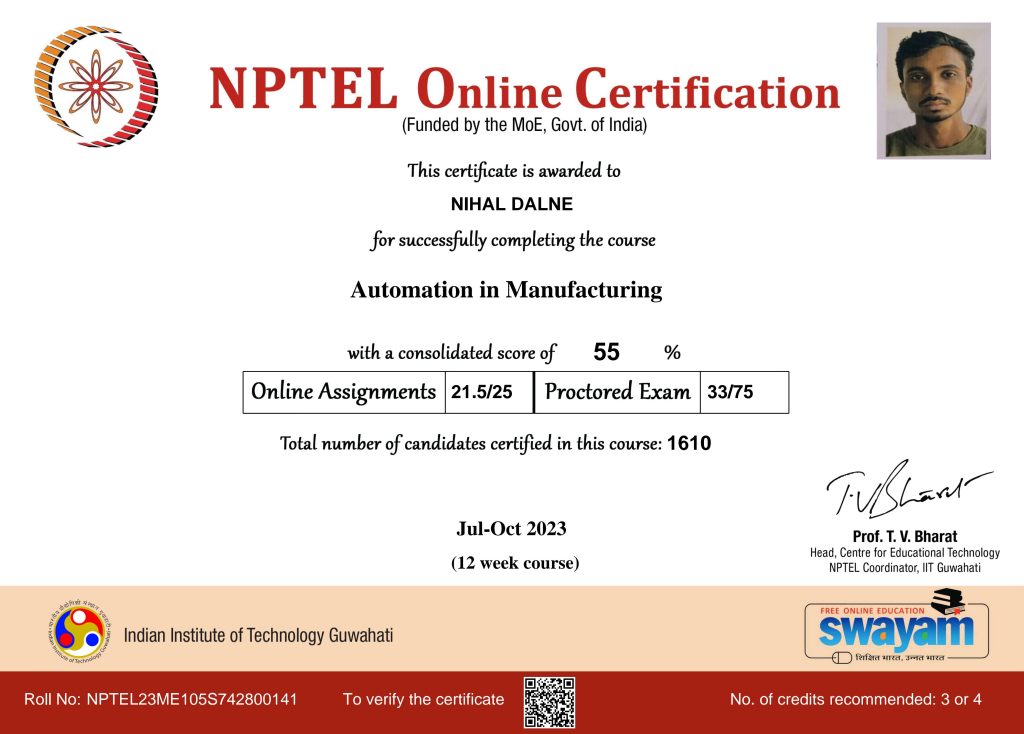
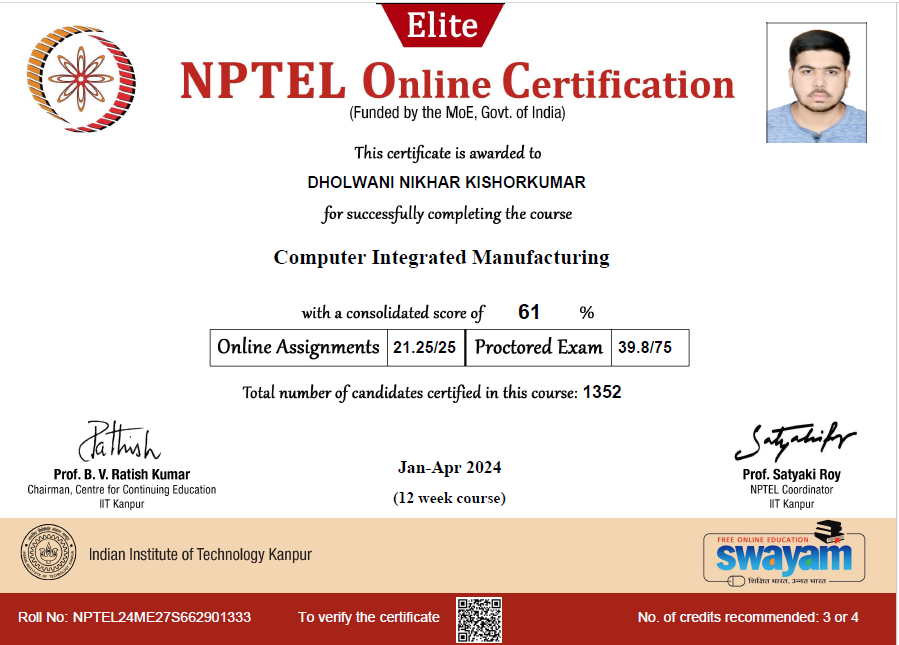
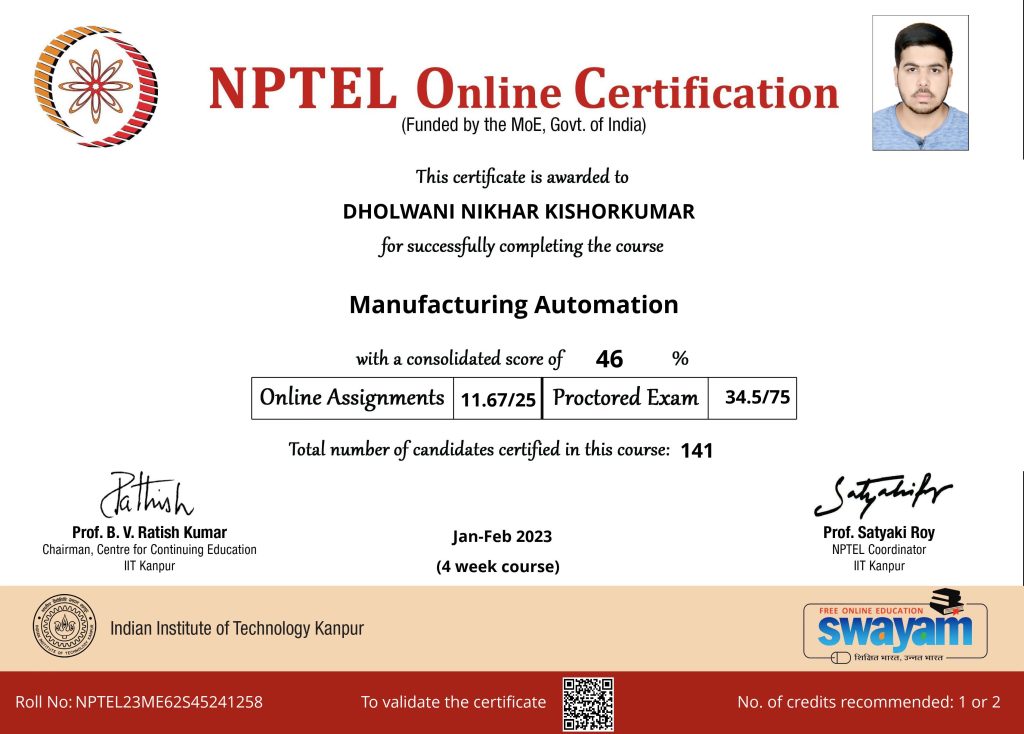
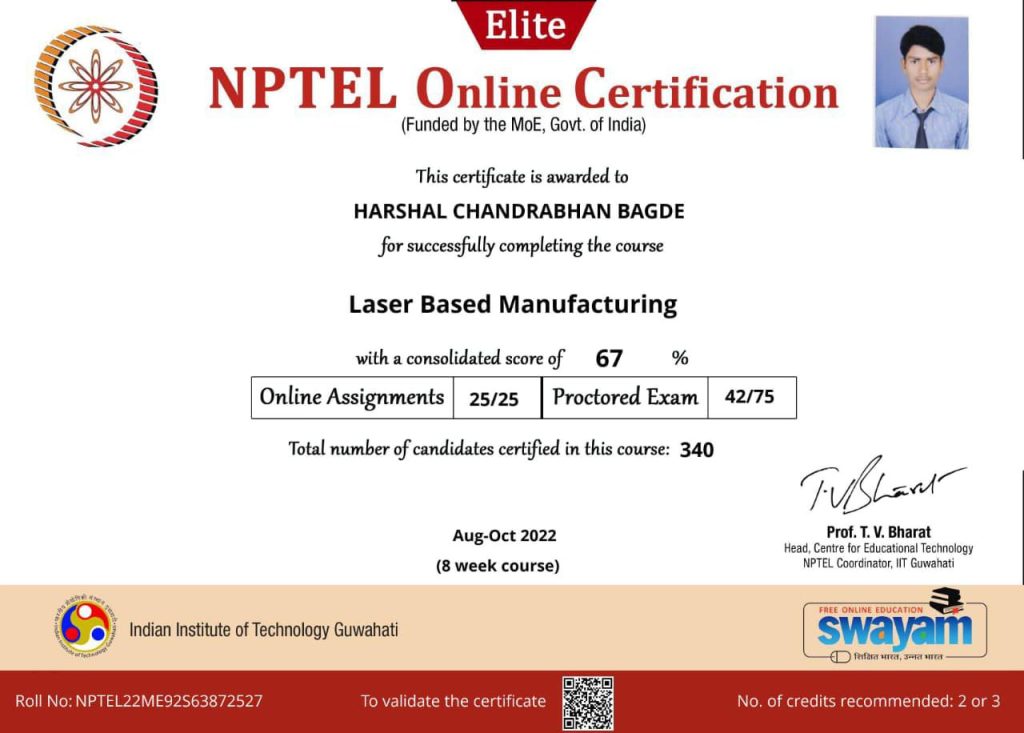

Placements







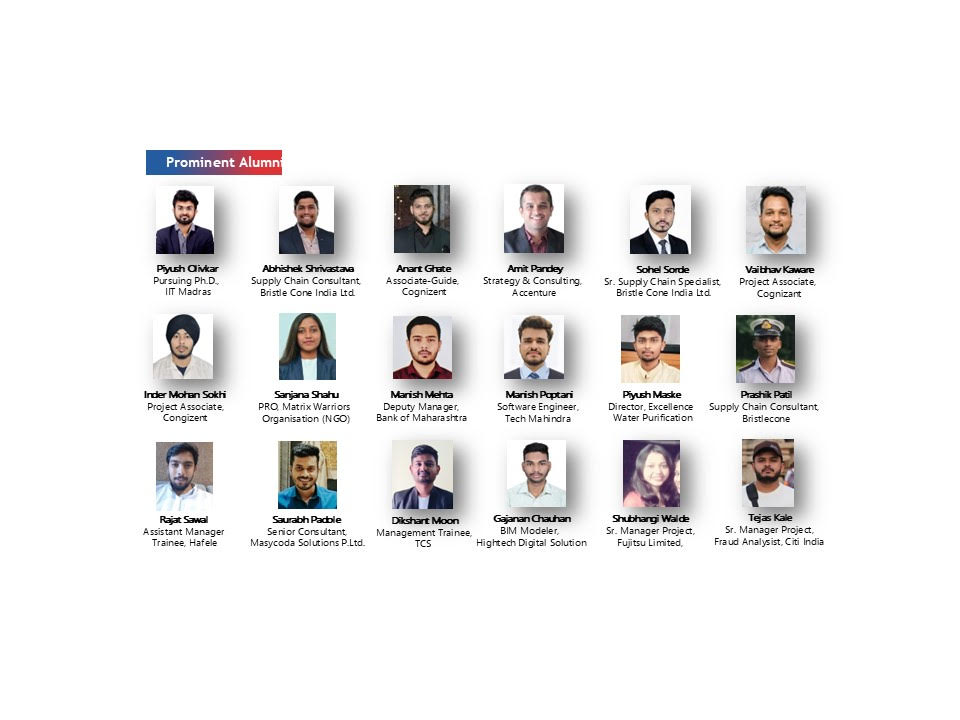

Magazines-
Magzine 2024-25
Magzine 2023-24
Magzine 2022-23
Magzine 2021-22
News Letters-
News Letter W-2024
News Letter S-2024
News Letter W-2023
News Letter S-2023
News Letter W-2022
Department News:







INDUSTRIAL VISIT
Industrial visit 23-24
Industrial visit 22-23
Industrial visit 21-22
Visit at HiTech Poly Plast Pvt. Ltd.

Visit at Heat Treatwell

Visit at Confidence Petroleum India Ltd.

Visit at Garuda Yantra Nirmiti Udyog

Visit at Kinetic Gear

Innovative Teaching-Learning Methods
Innovative Teaching-Learning Methods 2025-26
Innovative Teaching-Learning Methods 2024-25
Innovative Teaching-Learning Methods 2023-24
Innovative Teaching-Learning Methods 2022-23
Innovative Teaching-Learning Methods 2021-22
B Tech ME front pages and scheme
3rd Sem Mechanical Engineering Revised CBCS Syllabus
4th Sem
5th sem
6th sem
7th & 8th Sem
| Sr. No. | Name of faculty | Type of lecture | Topic | Link |
| 1 | Prof. Bhushan Deshmukh | English | Industrial Robot | Video Lecture on Industrial Robot by Prof Bhushan Deshmukh |
| 2 | Dr. Rahul Waghmare | English | LVDT | Video Lecture on LVDT by Dr Rahul Waghmare |
| 3 | Dr. Vandita Sahu | English | Vapour compression refrigeration | Vapour Compression Refrigeration System VCRS by Dr Vandita Shahu - YouTube |
| 4 | Dr. Sanjay Sajjanwar | English | Pattern making | Vapour Compression Refrigeration System VCRS by Dr Vandita Shahu - YouTube |
| 5 | Prof. Safal Shambharkar | English | Orthographic progression | Orthoghraphic Projection by Safal Shambharkar |
| 6 | Prof. Bhushan Deshmukh | English | CAD & CAM | Introdcution to CAD CAM by Bhushan Deshmukh |
| 7 | Prof. Amar Kawale | English | Fluid Properties | Fluid Properties by Amar Kawale |
| 8 | Prof. Prakash Dhopte | English | First angle Projection | First angle Projection by Prakash Dhopte |
| 9 | Dr. Vandita Sahu | Vernacular(Hindi) | Refrigeration | Vernacular ME Refrigeration Hindi 1 |
| 10 | Prof. Prakash Dhopte | English | Operation Research | Operation Research - VI Semester (Mechanical Engineering)- Simulation problem-I by Prakash Dhopte |
| 11 | Prof. Ganesh Palatkar | English | 2nd Law of Thermodynamics | 2nd Law of Thermodynamics Part-1 by Ganesh Palatkar |
| 12 | Prof. Anurag Karande | English | DOM Gyroscope Aeroplane effect | DOM Gyroscope Aeroplane effect by Anurag Karande |
| 13 | Prof. Ganesh Palatkar | English | DOM Gyroscope Aeroplane effect | 2nd law of Thermodynamics Part-2 by Ganesh Palatkar |
| 14 | Prof. Anurag Karande | English | DOM Gyroscope Aeroplane effect | Numerical on CAM Dynamics by Anurag Karande |
Overview

Throughout human history, engineering has driven the advance of civilization. The metallurgists ended the Stone Age by producing copper and iron. The ship builders united the world’s people through travel and trade. Increasingly sophisticated tools for agriculture, technologies for producing textiles, inventions transforming human interaction and communication. Mechanical clock and the printing press irrevocably changed civilization. In the recent past Industrial revolution impacted life and thought in a big way. Machines supplemented and replaced human labor for countless tasks. The steam engine facilitated mining, powered trains and ships. Improved systems for sanitation enhanced health in the western world.
Vision & Mission
Vision
The Mechanical Engineering Department strives for making thorough professionals who are employable through quality education.
Mission
- To instill best technical knowledge in the students to face intellectual and career challenges.
- To make the department a desirable place to study and work by providing opportunities to build and propagate knowledge.
Salient Feature
- Student Centric learning : Usage of ICT, Virtual Labs, Topic Beyond Syllabus, Peer Learning, Project Based Learning, Etc.
- Hand’s on Training In-house faculties conduct hand’s on Training on Automobile, Refrigeration & Air Conditioning, CATIA Software, etc.
- Excellent Industry linkage by doing MOU’s with renowned MNC’s.
- Assistance for students for doing IIT and other MOOC Certification courses.
- Student’s Forum “Mechtrix”, provide platform for students to showcase their knowledge and talents.
- Enhancement of Student Progression through Campus Recruitment Training & Competitive Examinations Preparations.
- Skill Development Program for students and faculties.
- Assistance for Live Mega Projects & Internship to enhance student’s learning & interaction with Industry persons.
- Provide Consultancy to various Industries in and outside Maharashtra.
- Encourage students to organize and participate in in-house and outside technical, curricular & extracurricular activities.
- Organize International/National Industry Tour and Visits for students.
- Personal Mentoring of students (one to one counseling).
- Encouragement to Faculties & Students for research (such as UGC, Scopus, web of science – journal publication, books chapter writing, pursuing further studies, participation in skill development seminars/STTP/FDP, workshops, Copy Right, Patent, etc.)
- Various Activities Conducted under ISHRAE


